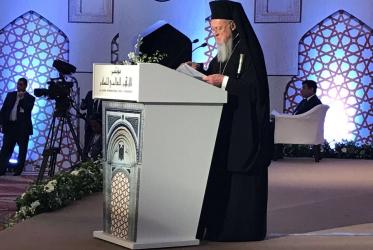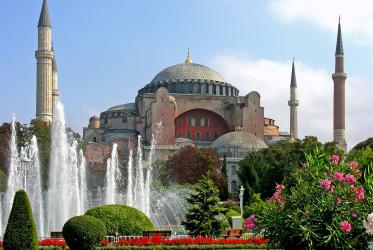Displaying 1 - 20 of 20
WCC general secretary mourns lost lives, calls for end to violence
11 December 2016
Facilitating peace with passion
26 July 2016
WCC/UN conference calls for coordinated action on refugee crisis
20 January 2016
WCC urges responsibility for and support to the refugees in Europe
04 September 2015
WCC Executive Committee speaks out on migrant crises
12 June 2015
WCC welcomes resumption of peace talks on Cyprus
18 May 2015
WCC-EAPPI volunteers encourage EU to address Palestine and Israel
07 November 2014











